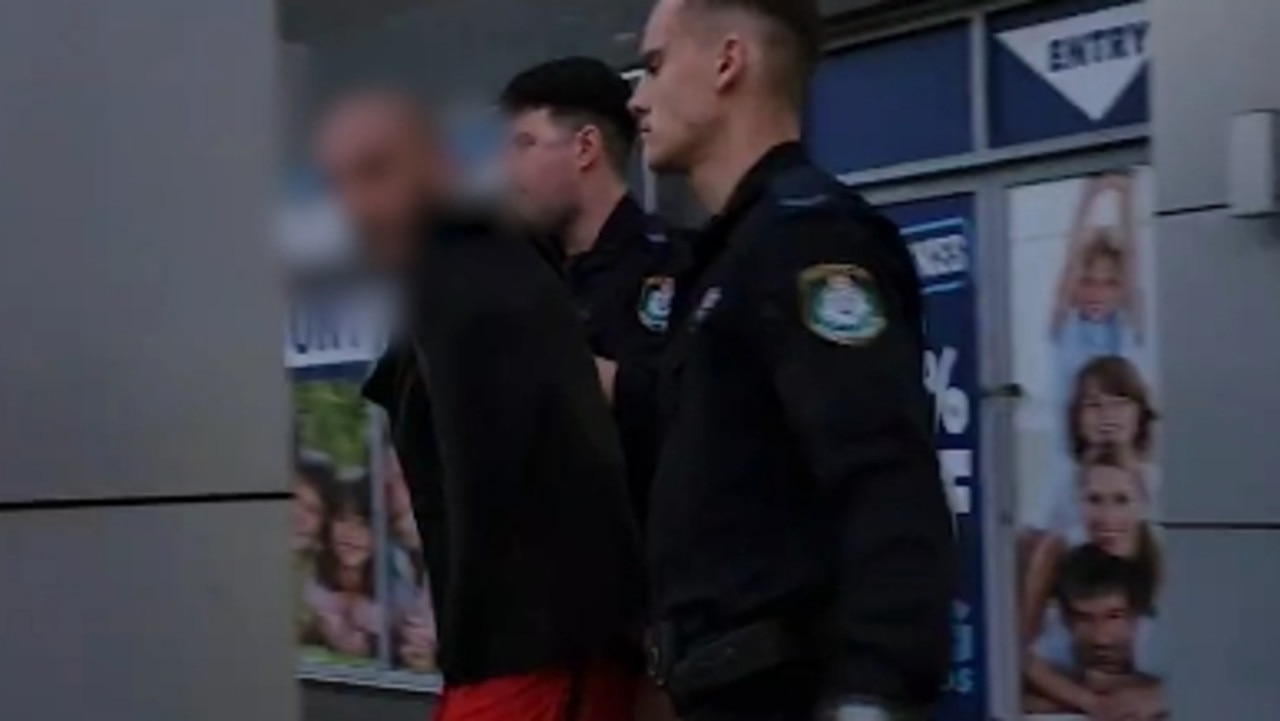NSW cops hunt down cowards in the face of hostile DV victims
An elite team of specialist police officers at Blacktown is making a dent in the scourge of domestic violence. Cydonee Mardon spent a day with the team, and found officers were not always well received — by the accused or their victims.
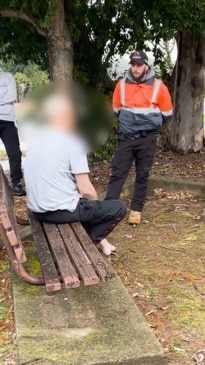
Police & Courts
Don't miss out on the headlines from Police & Courts. Followed categories will be added to My News.
In a quiet street in Blacktown, a man and woman tucked up in bed are disturbed by a loud bang on the front door.
The woman realises it’s the police and yells: “There’s no one here, just me, go away.”
She’s angry. She’s been here before. She knows what happens. And she’s hiding a coward.
The cops, dressed in streetwear, hear a man’s voice inside. It’s their signal to act.
Within minutes they burst in and escort their suspect out in handcuffs.
They sit him on a park bench and wait for the paddy wagon to arrive.
“I didn’t do anything, there’s no AVO, I haven’t done anything wrong, why are you doing this to me? I haven’t even done anything,” he says over and over, as he hangs his head in his hands and sobs.
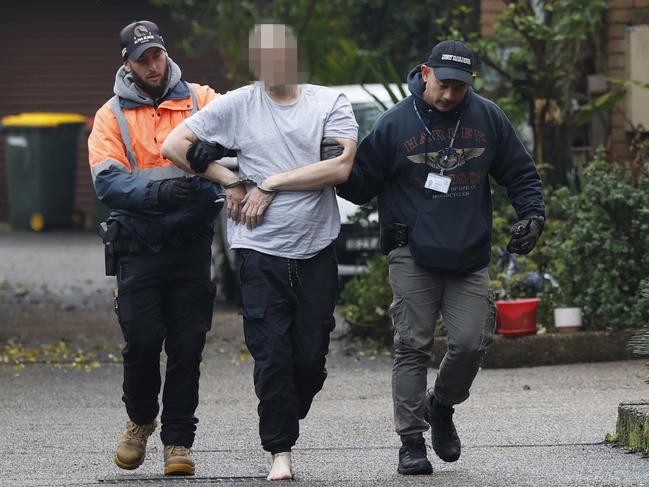
Senior Constable Amante Decena calmly explains to the man known to them that he is in breach of his apprehended violence order. He is not to be within 100m of this address.
“But I’ve done nothing wrong,” he continues, becoming more emotional at the thought of going back to jail.
He calls out to his partner, still in the unit, to bring him a cigarette. Then pleads with her to come to court.
The police won’t let the pair have any physical contact, so Constable John Trinnie goes to her to get the man’s cigarettes. He has a cigarette lighter hurled at him for his trouble.
The woman is angry her partner is being taken away. Furious, in fact, despite him having dozens of AVO beaches on his record, convictions for assaulting her, stalking and intimidating her and threatening to burn down her home.
This specialist DV team is used to copping abuse for trying to help. But they will do it day in, day out, anyway.
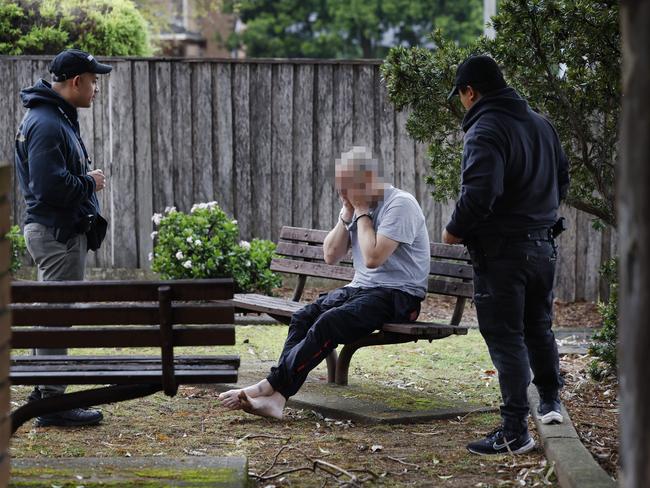
“We don’t want one of these women to be the next murder victim,” says team leader Sergeant Beck Abel.
“We want to know that we have done everything we can on our part. We don’t want one of our team members or our colleagues being called to a murder.”
The command is still reeling from the recent Lalor Park horror where a father is alleged to have lit a blaze using accelerant and blocked his family from fleeing, killing three of his children. The man is before the courts.
“We don’t want anyone to have to go through that. That’s why we do this. This is what we do every single day.”
Sgt Abel and her team at Blacktown Police Station work full time responding to jobs where women, children and men are being threatened or harmed by a partner.
They hunt perpetrators who are breaching their AVOs, and they work closely with victims who often can’t see that the only chance of a safe life is breaking the cycle.
“We rely a lot on victims, their relatives, neighbours and the tips from the public, but also on our knowledge of jobs in the area,” Sgt Abel said.
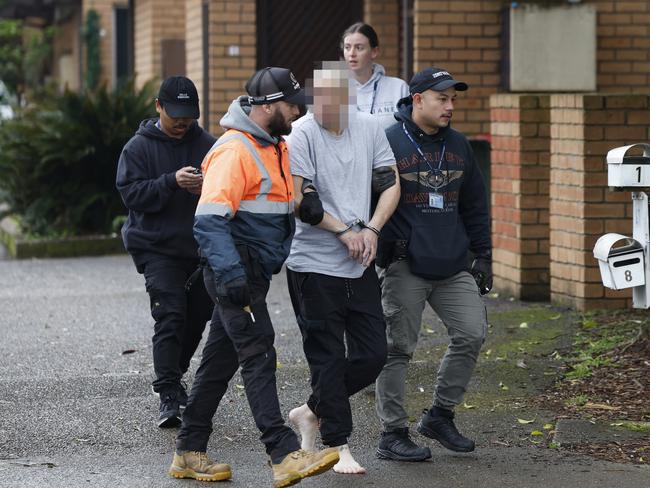
It’s a never ending — and sometimes frustrating — fight against the perpetrators we call coward attackers.
But knowing that missing one compliance check could cost lives keeps them going.
The man sobbing in his front yard on Tuesday morning was a classic example of the pattern of behaviour they’ve come to expect.
Angry, violent, intimidating, calculated and controlling — until they are caught. Then they can be remorseful, charming — and cowardly.
“They can be very cunning and manipulative and that’s a real concern and adds another layer of complexity,” explains Blacktown Crime Manager Jason Pietruszka.
“Unfortunately, charging them can be the easy part, but getting them to court can be really difficult because the victims are often reluctant to continue, sometimes frightened and sometimes just unwilling to take the matter any further,” he said.
“Even though there might be bail conditions, many victims get a lot of pressure, so getting them into court can be quite difficult.
“We have also had cases where a person in jail has rung a friend who will then divert their call to the victim, so it can be quite challenging.”
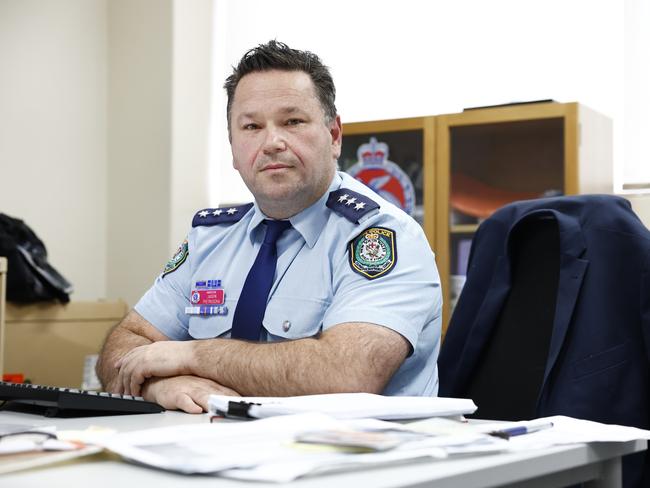
Then you have the hostile victim who blames police for their horrible predicament.
“Why don’t you go out and catch real criminals, it’s just an AVO,” shouted another woman at an address on Tuesday afternoon, 10 minutes away from the location of the arrest that morning.
Her partner was already in jail for assaulting her and now her son was back at her address, having committed offences against her that police had deemed deserving of an AVO.
“Leave him alone,” she screamed as they handcuffed her son who’d been found inside the home.
Two cops stood over the back fence in plain sight while another two entered from the front.
He had a history of running when he sensed police approaching so they were prepared.
Sgt Decena explained to the woman she could come to the court and see her son, who was being led away for processing, to which she retorted “Yeah, yeah I get it, I know how it works, court then jail. I know how it works,” and stormed back inside.
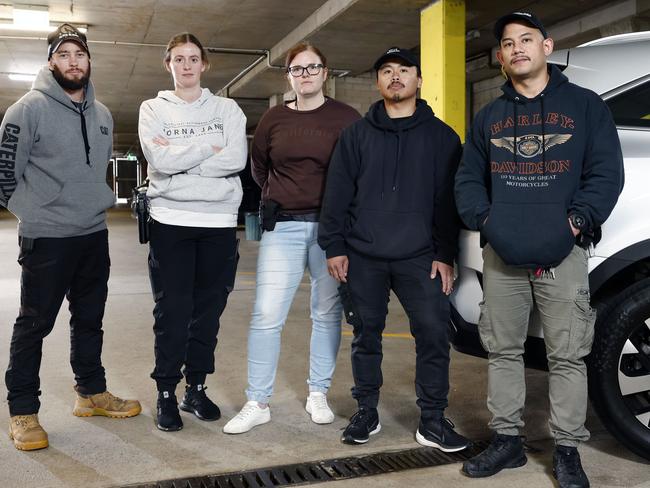
The cooperation of the victim depends largely on what stage of the cycle of DV they are in, ” explains Sgt Abel.
“They call us when they fear for their lives, but then when things settle down and the nicer behaviour starts, they want it all to go away.
“We understand how difficult it can be to leave, but we try to explain to them that we want everyone to be in a safe environment, and sometimes having the offender inside isn’t safe,” she said.
“A lot of women that come to court want to drop the AVO or not give evidence. And I say, ‘well, because it didn’t happen? Or because this whole thing is horrible?’
“I try to ask ‘why are you willing to compromise yourself for him? Why isn’t he here saying ‘I have done the wrong thing’ yet you are willing to compromise yourself?’.”

Sgtt Abel and all her team members understand how hard it can be for someone to leave a violent situation.
“That’s their life and they have to go back to it. A lot of the time they feel they have no options, no money. It’s really hard for them,” she says.
“And sometimes an offender will talk to us in court and I think to myself ‘If I wasn’t doing this job and didn’t know what their history was, I would think they were quite charming’.
“It’s when they realise they can’t control, when I tell them that I know what they have done that the charm turns off.
“But we have to appreciate everyone has a different story and people have their reasons for not being ready to leave. That’s where we come in.
“We keep doing this because we want to protect them and break the cycle,and for them to understand they deserve to be safe.”
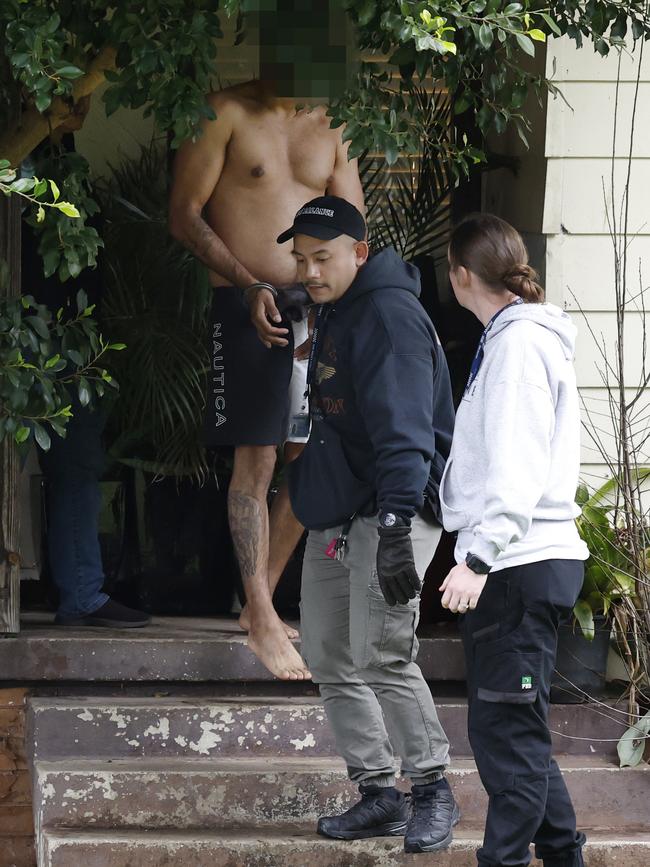
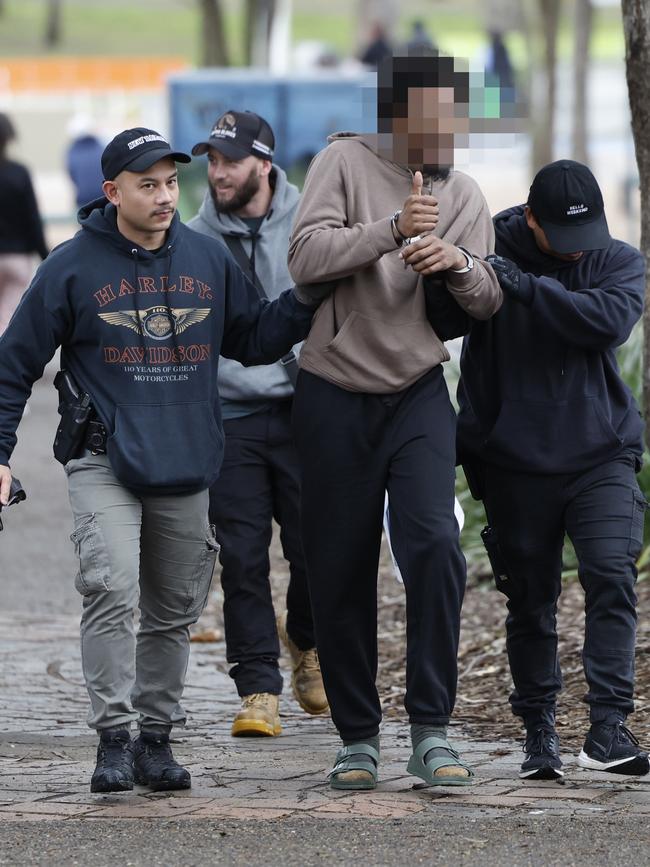
MAKING A DIFFERENCE
An elite team of plain-clothes police officers is quietly making a huge dent in the rate of violence towards women and children inside homes in Western Sydney.
The NSW police officers have not only helped Blacktown Area Command record a higher number of arrests for domestic violence-related offences and breaches of apprehended violence orders, but their “passionate, proactive approach” has helped drive down the rate of domestic violence by 5 per cent.
The promising results come at a time when the country is facing a scourge in violence against women and children that prompted the Daily Telegraph to launch a campaign to shame perpetrators.
In Blacktown, the team of men and women working every single day fighting domestic violence have been described by their commander as “exceptional at what they do”.
“Generally we are seeing domestic violence rates go up but here it’s gone down, not only gone down, but we have arrested more people,” Blacktown Crime Manager Jason Pietruszka exclusively told The Saturday Telegraph.
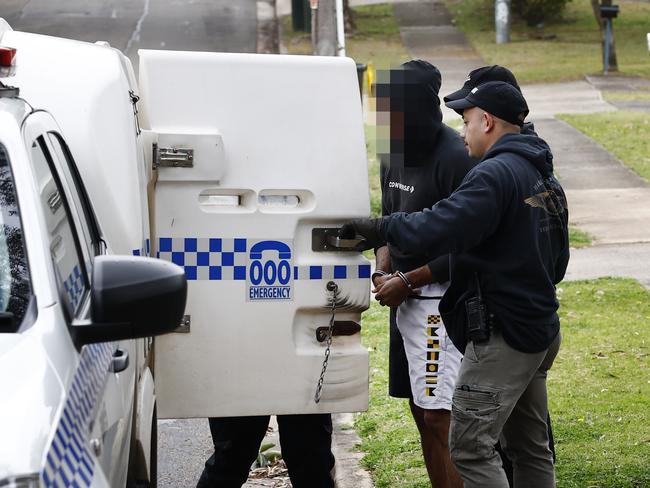
“This is a team that does exceptional work and are so passionate, they just love going to work because they know they are making a difference. It’s about breaking the cycle,” he said.
In the 2023-2024 financial year the command recorded 594 DV assaults — down from 636 the previous financial year. That’s a reduction of 5 per cent.
“Such numbers are consistent in metro commands and across the state where DV assaults are generally going up by five per cent year on year out,” Mr Pietruszka said.
“We are arresting more people, doing more compliance checks and of course people are more comfortable reporting DV, but for us to see these results it shows we are making a difference.”
Key to the team’s success is targeting the worst of the worst.
“Every DV offence is serious. We get first-time offenders who push their partner or get their hands on them and that’s serious, but the ones these guys go after are the ones that have habitually done this in every relationship for the past 20 years,” he said.
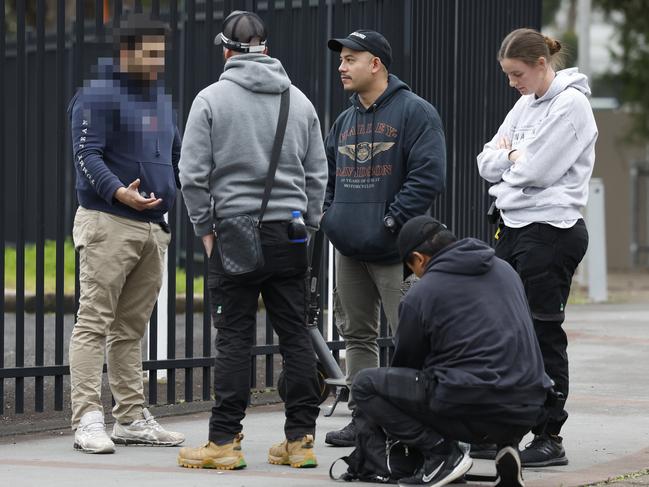
“We spend time and resources on locating those people and hunting them down, whether they are interstate or overseas.”
Mr Pietruszka said a vital part of the command’s approach to coward attacks was the Safety Action Meetings held every fortnight with other government agencies, including health, education and community justice, where the most dangerous cases are discussed.
“We look at things from the point of view of the victims, of children, see what education, health might be seeing and what can be done.”
Mr Pietruszka said police should be the last line of defence in the fight, but when needed the DV team was there to spring into action and make sure known violent offenders are stopped from repeating the cycle.



